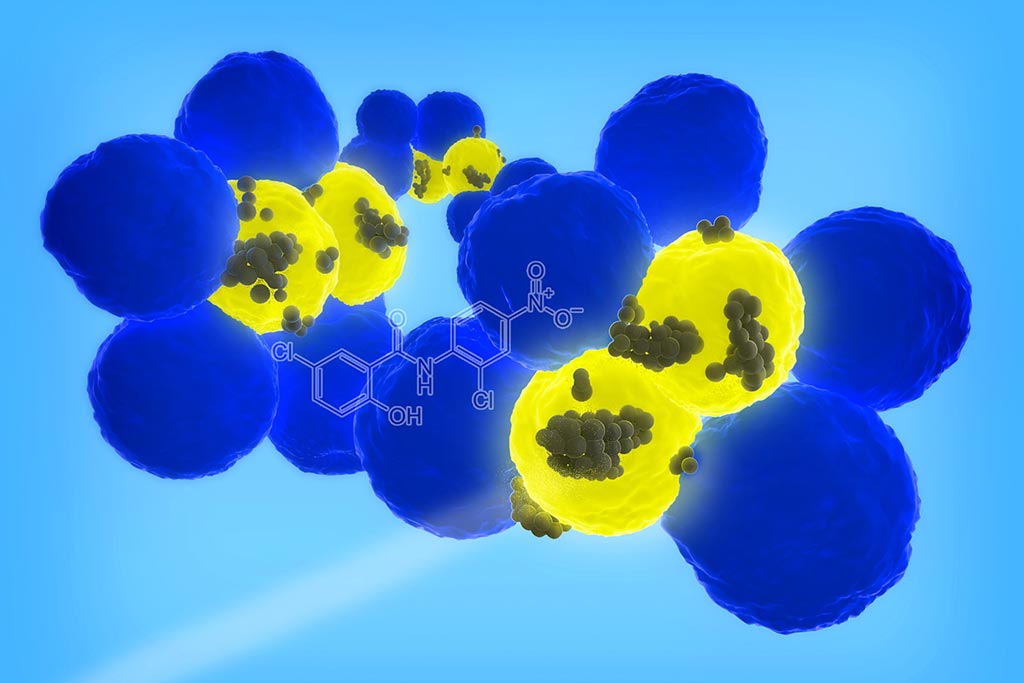Use of Niclosamide to Deactivate Cancer Stem Cells
By LabMedica International staff writers
Posted on 06 Dec 2017
Nanoparticles designed to selectively deliver the drug niclosamide to cancer stem cells caused the cancer stem cells to lose their stem-like properties and rendered them less able to cause recurrence or metastasis.Posted on 06 Dec 2017
Cancer stem cells are known to be controlled by pathways that are dormant in normal adult cells. An example is PTEN, which is a negative regulator of the transcription factor STAT3. STAT3 regulates genes that are involved in stem cell self-renewal and thus represents a novel therapeutic target.

Image: Researchers developed nanoparticles that can target cancer stem cells (yellow), the rare cells within a tumor (blue) that can cause cancer to recur or spread (Photo courtesy of Dr. Dipanjan Pan, University of Illinois).
In order to manipulate STAT3 expression, investigators at the University of Illinois (Champaign-Urbana, USA) synthesized nanoparticles from a biocompatible polymer and coated them with antibodies directed at the CD44 protein, which only appears on the surface of cancer stem cells. The nanoparticles were loaded with the widely used anti-parasite drug niclosamide, which deactivates the STAT3 pathway.
Results published in the November 14, 2017, online edition of the journal Molecular Cancer Therapeutics revealed that treatment with the nanoparticles caused cancer stem cells in culture to lose their stem like properties, making them less able to cause the cancer to recur or metastasize. In addition, there was a significant decrease in overall cancer cell growth, both in the cell cultures and in mice.
"I call them "GPS-enabled nanoparticles," because they seek out only the cells that have cancer stem cell properties. Then they latch onto the cells and deliver the drug," said senior author Dr. Dipanjan Pan, professor of bioengineering at the University of Illinois. "To the best of our knowledge, this is the first demonstration of delivering cancer stem-cell-targeted therapy with a nanoparticle. We purposely used an extremely inexpensive drug. It is generic and we can mass produce it on a very large scale. The nanoparticles are a polymer that we can make on a large scale – it is highly defined and consistent, so we know exactly what we are delivering. The rest of the process is just self-assembly."
"It is critical to administer treatments for already-developed tumors; however, long-term survival and not allowing it to come back are equally important," said Dr. Pan. "We want to destroy the cells that are hidden in the tissue and cause the cancer to come back or spread to other parts of the body."
Related Links:
University of Illinois













